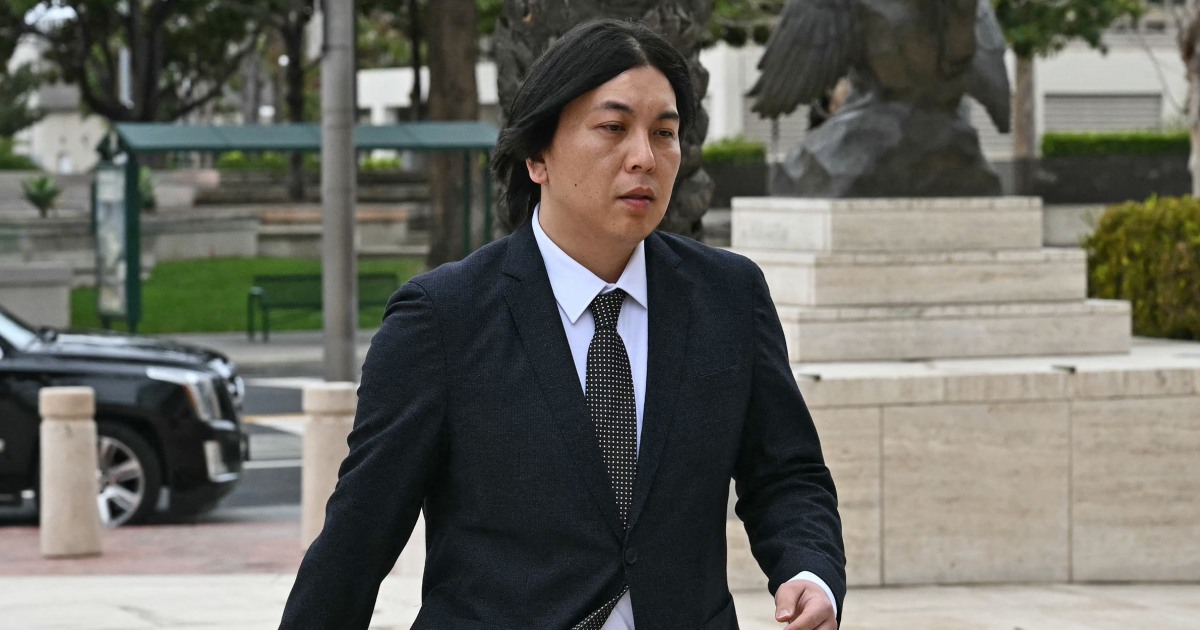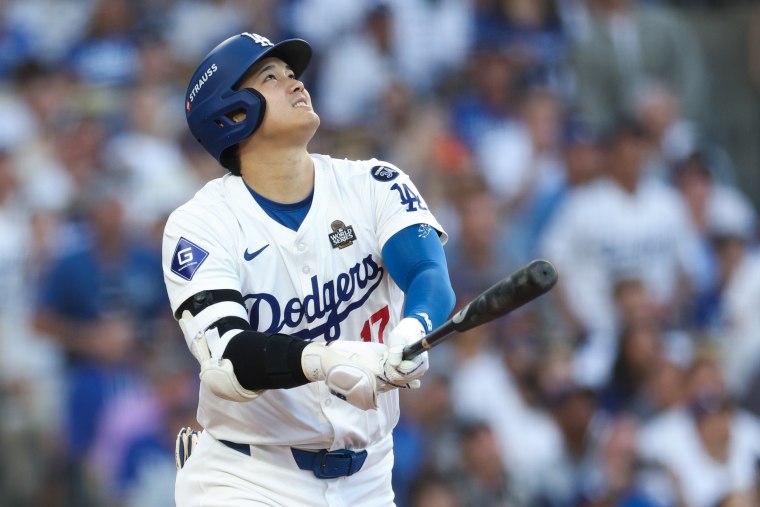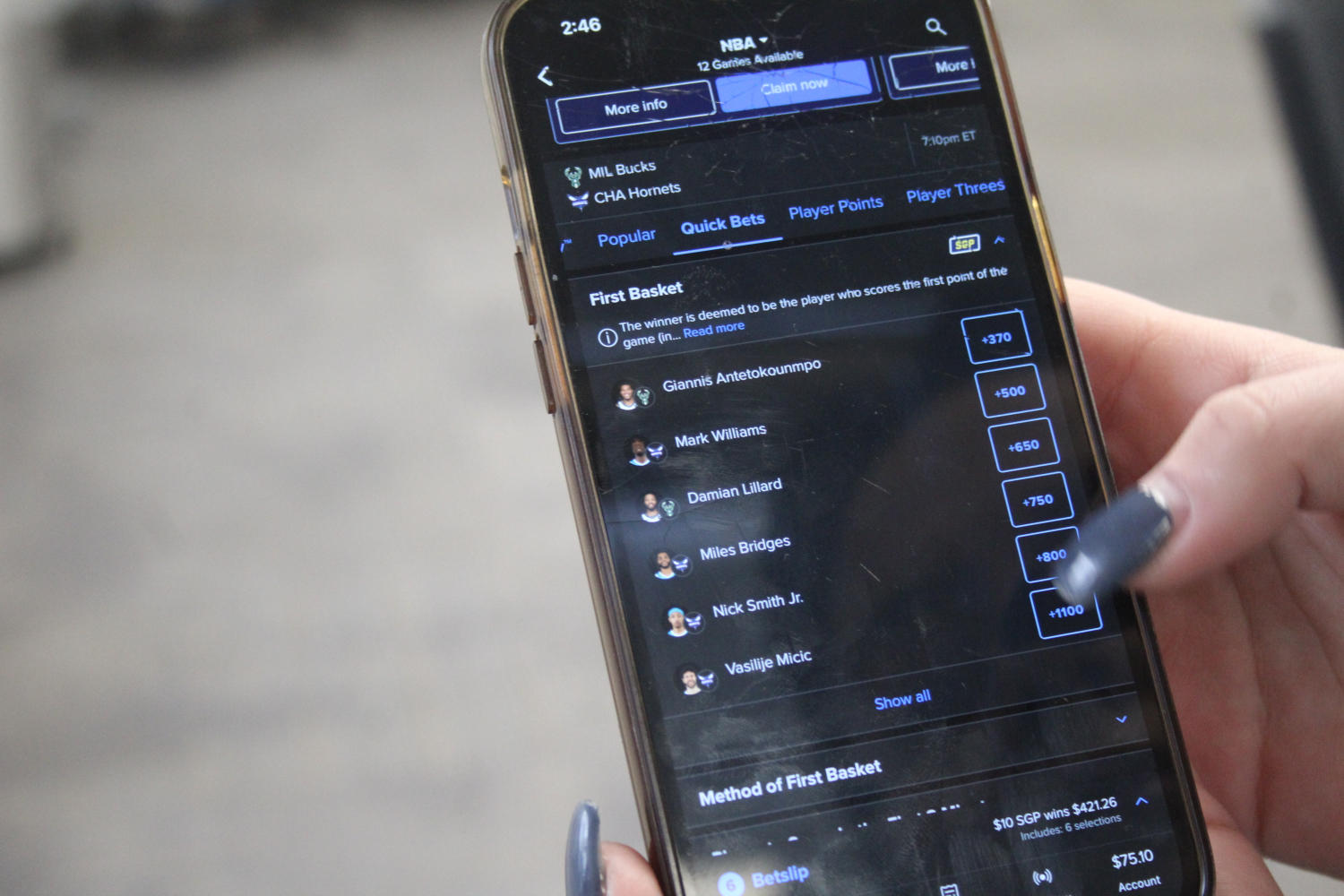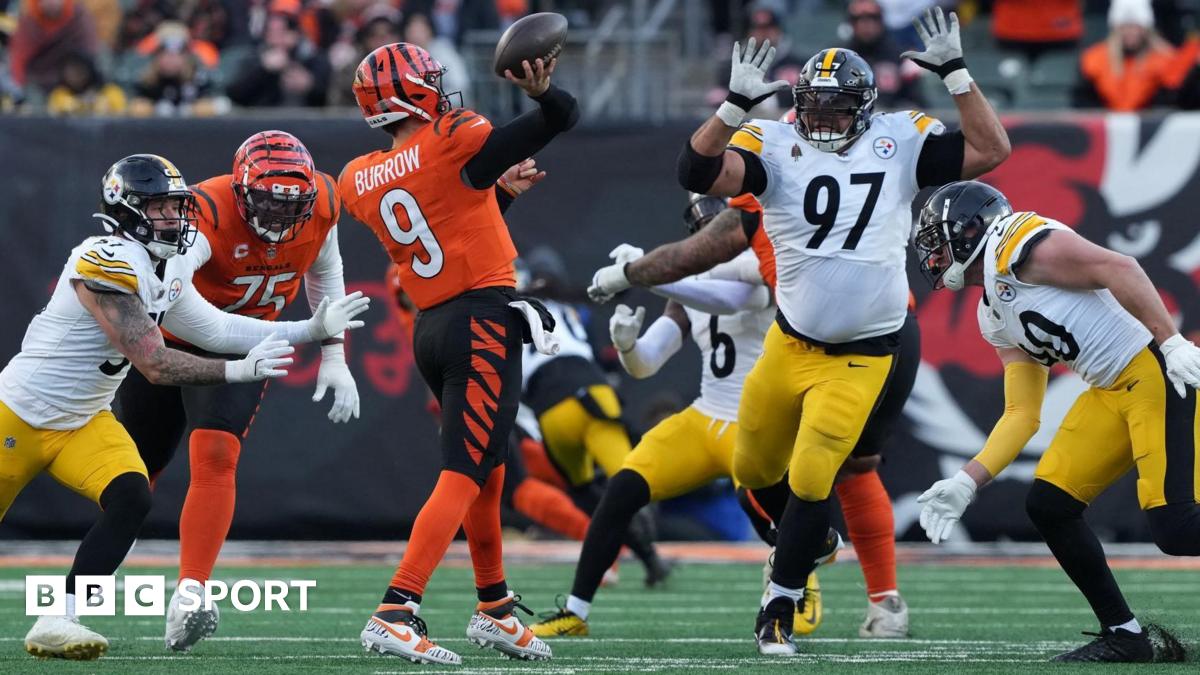Shohei Ohtani’s former interpreter sentenced to nearly 5 years in gambling-linked theft

Shohei Ohtani’s onetime interpreter was sentenced to nearly five years in prison for stealing millions of dollars from the Los Angeles Dodgers superstar to pay off gambling losses.
In addition to the 57-month, sentence, Ippei Mizuhara was also ordered to pay more than $18 million in restitution, with the majority going to Ohtani and the rest to the Internal Revenue Service.
The federal judge ruled Thursday in a Southern California courtroom that Mizuhara should self-surrender March 24. He was also ordered to three years of supervised release after his prison sentence.
Mizuhara last year pleaded guilty to bank fraud and subscribing to a false tax return, in connection to stealing nearly $17 million from Ohtani’s bank account.
The money was used for gambling and to purchase $325,000 worth of valuable baseball cards, prosecutors and Ohtani’s legal team have said.
Prosecutors have made it clear from the start that they believe the MLB superstar was never anything more than a victim and that he never bet on baseball.
“Let there be no doubt, Mr. Ohtani is truly a victim and has suffered, and will continue to suffer, harm from defendant’s conduct,” prosecutors said in court documents.
On paper, Mizuhara could have faced up to 30 years behind bars — though federal prosecutors sought a prison sentence of four years and nine months.
After the sentencing, Acting U.S. Attorney Joseph McNally told reporters that Mizuhara’s “behavior was shameless,” and he “lied, cheated and stole.”
He said that Mizuhara took advantage of his close colleague as Ohtani tried to “navigate the world of baseball” as a non-English speaker who had just become a celebrity athlete in the U.S.
“Today’s sentence closes this case,” McNally said.
Defense lawyer Michael G. Freedman said Mizuhara is a gambling addict who made a “terrible mistake” and is taking responsibility.
Mizuhara, who was born in Japan and moved to the United States as a child, could be deported after completing his term.
“I am asking for a little mercy from the court concerning my sentence you will hand down,” Mizuhara wrote to the court.

“I truly admire Shohei as a baseball player and a human being and I was committed to devote my life so Shohei can be the best version of himself on the field. I want to say I am truly sorry for violating his trust in me.”
His attorney said he would have no comment after the sentencing.
McNally, the acting U.S. attorney, said that his understanding is that Mizuhara is a permanent resident in the U.S. with lawful status. Typically, after someone is convicted and no longer has lawful status, they will go through U.S. immigration proceedings and could be deported right away, McNally said.
But McNally said he is not sure how it will play out in this case, although he said he suspects that Mizuhara will be deported after he serves his time.
While in court, Mizuhara thanked the judge and apologized to Ohtani, although he said an apology won’t fix anything and he accepts responsibility for what he has done.
He also said the mistake will impact him for his whole life and he will not try to justify his actions.
Mizuhara, in court, said he is prepared to be punished and beg for mercy.
News of a federal inquiry into Mizuhara’s possible links to gamblers cast a pall on Dodgers’ 2024 opening games, played in Seoul. Mizuhara was in the Dodgers dugout for that first game before he was fired.
Ohtani and the Dodgers went on to win World Series seven months later, staging their first victory parade since 1988.
Related
Americans are betting more than ever on sports. Health experts…
$1.3 billion. That’s how much Americans are expected to bet on a single event: The Super Bowl matchup on Feb. 9. It highlights
Online gambling is booming ahead of Super Bowl. So, experts…
This story is part of CBC Health's Second Opinion, a weekly analysis of health and medical science news emailed to subscribers on Saturday mornings. If you have
Gambling with death: Meet the agents helping Gujaratis illegally move…
This report was first published on April 8, 2023. It was republished after a US military plane landed in Amritsar on February 6, 2025 carrying deported Indian m












